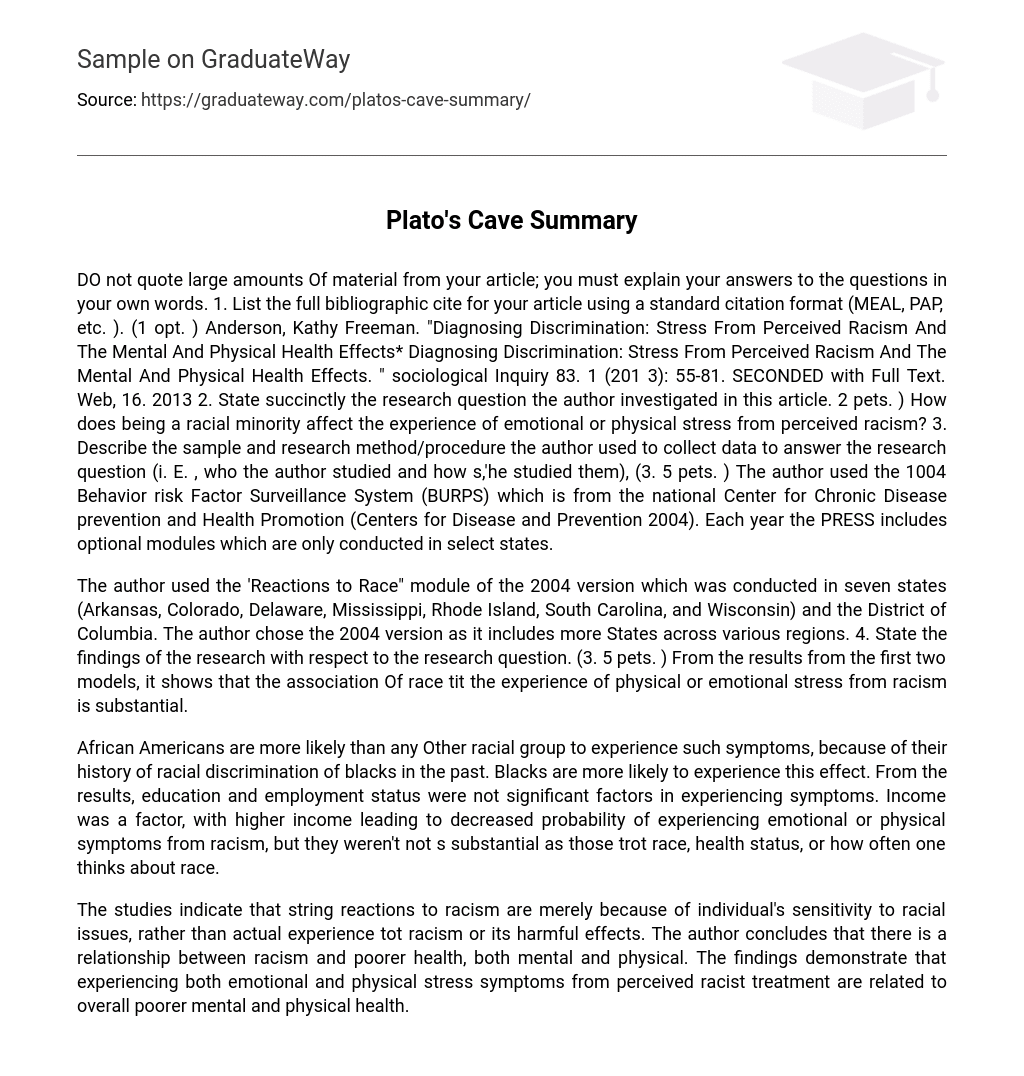DO not quote large amounts Of material from your article; you must explain your answers to the questions in your own words. 1. List the full bibliographic cite for your article using a standard citation format (MEAL, PAP, etc. ). (1 opt. ) Anderson, Kathy Freeman. “Diagnosing Discrimination: Stress From Perceived Racism And The Mental And Physical Health Effects* Diagnosing Discrimination: Stress From Perceived Racism And The Mental And Physical Health Effects. ” sociological Inquiry 83. 1 (201 3): 55-81. SECONDED with Full Text. Web, 16. 2013 2. State succinctly the research question the author investigated in this article. 2 pets. ) How does being a racial minority affect the experience of emotional or physical stress from perceived racism? 3. Describe the sample and research method/procedure the author used to collect data to answer the research question (i. E. , who the author studied and how s,’he studied them), (3. 5 pets. ) The author used the 1004 Behavior risk Factor Surveillance System (BURPS) which is from the national Center for Chronic Disease prevention and Health Promotion (Centers for Disease and Prevention 2004). Each year the PRESS includes optional modules which are only conducted in select states.
The author used the ‘Reactions to Race” module of the 2004 version which was conducted in seven states (Arkansas, Colorado, Delaware, Mississippi, Rhode Island, South Carolina, and Wisconsin) and the District of Columbia. The author chose the 2004 version as it includes more States across various regions. 4. State the findings of the research with respect to the research question. (3. 5 pets. ) From the results from the first two models, it shows that the association Of race tit the experience of physical or emotional stress from racism is substantial.
African Americans are more likely than any Other racial group to experience such symptoms, because of their history of racial discrimination of blacks in the past. Blacks are more likely to experience this effect. From the results, education and employment status were not significant factors in experiencing symptoms. Income was a factor, with higher income leading to decreased probability of experiencing emotional or physical symptoms from racism, but they weren’t not s substantial as those trot race, health status, or how often one thinks about race.
The studies indicate that string reactions to racism are merely because of individual’s sensitivity to racial issues, rather than actual experience tot racism or its harmful effects. The author concludes that there is a relationship between racism and poorer health, both mental and physical. The findings demonstrate that experiencing both emotional and physical stress symptoms from perceived racist treatment are related to overall poorer mental and physical health.





